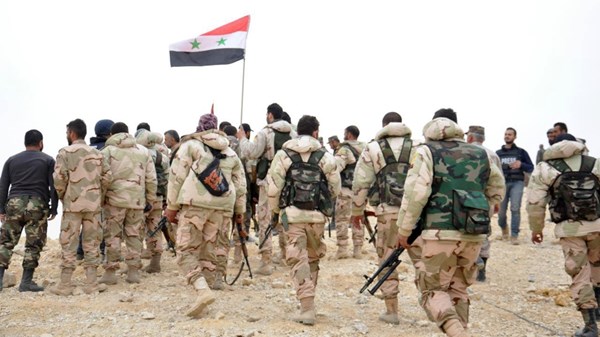Assad’s troops attack Eastern Ghouta in defiance of armistice
Despite the daily humanitarian breaks imposed by Russia, Syrian government troops are advancing deeper into the suburbs of Damascus in Eastern Ghouta. According to the Syrian Observatory for Human Rights (SOHR), the army of Syrian President Bashar al-Assad has already captured several villages.
According to the United Nations Children's Fund (UNICEF), the Syrian government may let a convoy carrying medical supplies and food for 180,000 people enter Duma, one of the districts of Eastern Ghouta, on March 4. Meanwhile, the agreement with the Assad regime on the further supply of humanitarian aid to an additional 200,000 residents of the Damascus suburb and the evacuation of neatly 1,000 people in critical condition has not been achieved, a UNICEF representative said on March 2. According to the Fund, the number of extremely malnourished children in Eastern Ghouta has grown tenfold in six months.
On the same day, German Chancellor Angela Merkel and US President Donald Trump underscored that Russia should "stop bombing East Ghouta [and] compel the Assad regime to halt offensive operations against civilian areas." In addition, the leaders noted that the Syrian regime must be held accountable for the continuing deterioration of the humanitarian situation in the region. This concerns both the use of chemical weapons by the Assad regime and attacks by its troops against civilians, as well as the blockade preventing the delivery of humanitarian aid.
The Russian Minister of Defense announced the introduction of a daily five-hour humanitarian pause for the besieged Syrian troops in Eastern Ghouta on February 26. "By order of the Russian president, a daily humanitarian pause from 9:00 to 14:00 will be introduced beginning February 27 in order to eliminate civilian deaths among the Eastern Ghouta population," stated Sergey Shoygu.
The area adjacent to the Syrian capital is controlled by opponents of official Damascus, among them both representatives of the moderate opposition and Islamists. This area was likely exposed to the most intensive bombing of the entire war in Syria, which has been going on for seven years. According to human rights defenders, in just one week in February, more than 500 civilians, including 120 children, were killed in Eastern Ghouta. More than 2,400 people were injured.
On February 24, the UN Security Council adopted a resolution on a temporary ceasefire in Syria for a period of 30 days to deliver humanitarian aid and evacuate the wounded in need of medical assistance. This does not apply, however, to military operations against a number of terrorist organizations.
"Eastern Ghouta cannot wait; it is high time to stop this hell on earth," UN Secretary General Antonio Guterres said at the opening of the 37th session of the UN Human Rights Council in Geneva.
